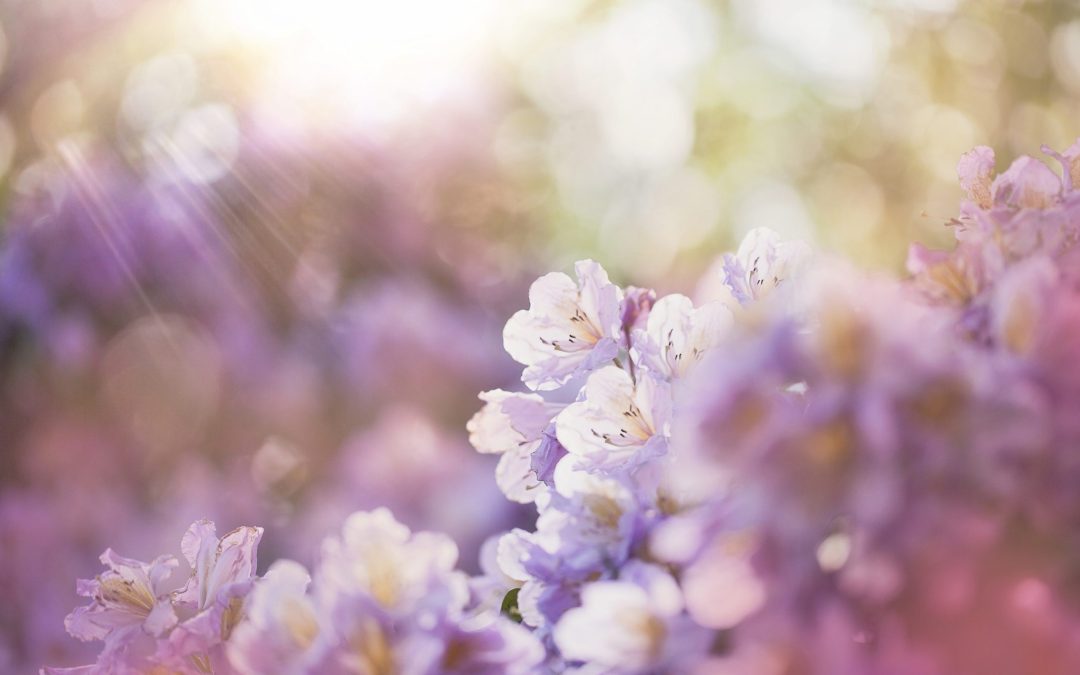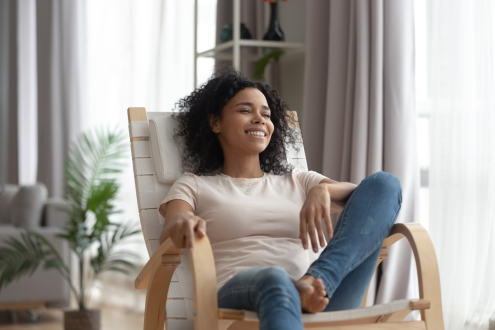My spirituality and religion: why I keep it a secret
A spiritual life is fundamental to Lucy-Anne Holmes’ identity and wellbeing. So why does she keep it a secret?

8 minute read
The journalist asks me: ‘Are you spiritual or religious?’ I’m not expecting that question.
‘Um… Well… Yes.’ Hesitant at first, soon I am chatting away. However, at the end of our conversation, I panic. ‘Please don’t print any of that!’
That was five years ago. I was being interviewed by Psychologies for the ‘Shared values’ column. When it was printed, there was no mention of my spiritual or religious life. It was a beautiful piece that garnered great feedback, but I’ve always been fascinated by my response to that query – why was I so afraid to speak openly about my spiritual life?
I should make it clear from the get-go that I am not shy. I’ve just published an honest memoir about my sex life. To use Facebook as the arbiter of modern behaviour, I regularly share information about sex and masturbation – and yet I haven’t told my Facebook friends that I am a Quaker and that I attend a spiritualist church and receive messages from my dead ancestors. In fact, as I type this, I feel short of breath, anxious and a bit like I am being strangled.
Higher power
Spirituality is a funny term. As individuals, we all have a different idea of the word. For me, when I speak about my spiritual life, I use it to describe my connection to the spirit in everything, particularly in myself: How is my spirit? Am I feeling free, alive, at peace? Am I on the right path for this lifetime? I commune with myself in a variety of ways – mainly through meditation and journalling – to find the answers to these questions. And my spirit also gets nourished by other spirits – certain friends, nature, conscious sexuality and being in groups where it is OK and safe to talk about these topics. I also have a sense of spirit that I can’t see, but feel around me all the time: angels, ancestors, loved ones who have died – who knows what else is floating about out there? For me, it is here – the everything in the nothing – that the magic lies.
I’ve always felt drawn towards the spiritual and yet, all too often, I’m aware of conflict around it. My father’s parents did not approve of my mother because she wasn’t Catholic. I went to a convent school. I loved the chapel. I felt something. I prayed. But, the older I got, the more I bumped into things with which I disagreed. For something that was supposed to be about love, it had a lot of blood and trauma on its hands. I entered my 20s feeling organised religion wasn’t for me. But I did miss my connection with ‘God’ and, looking back, I was a bit lost.
In my early 30s, I read The Artist’s Way: A Spiritual Path To Higher Creativity by Julia Cameron (Profile Books, £14.99), and it changed my life. At the time, I was in a play in one of the best theatres in London, somewhere I’d always wanted to work, but I wasn’t enjoying it and I couldn’t understand why. I began reading The Artist’s Way to reconnect with my love of acting.
Enlightenment
One of the tools the book gave me was ‘morning pages’, a practice whereby, every morning, you write down whatever is in your head. I think it was the first time as an adult that I consciously began to connect with my spirit. I found that I didn’t write about acting, I wrote about love and my complicated relationship with it. Things took a surprising turn when, after the play finished, I started a blog about my disastrous love life. I’ve been a writer ever since.
That simple practice connected me to my essence; who I am and what I am here to do. Over time, I developed faith in something that wasn’t external and didn’t need a holy man to oversee it. I began meditating and my life became more of a dance than a slog.
When I met my partner, he said, ‘You are so a Quaker!’ I was a feminist, an activist and I meditated. ‘You’ll love the Quakers,’ he said. He was right, I started going to meetings and it felt like coming home. Quakers gather for an hour of silence on a Sunday and anyone can speak. There is no priest or hierarchy. Quaker principles are simplicity, peace, truth, equality and sustainability.
Years later, I continue to be inspired by them. Quakers helped abolish the slave trade, have always seen women as equal to men and are full of people who think differently, but accept each other. It has been called ‘practical mysticism’.
Granny tells me to dance
Quakerism is one of my spiritual homes, but it isn’t the only one. Sometimes, I attend a Christian Spiritualist Church. They also hold a Sunday service, part of which is a demonstration of mediumship. I regularly get messages from departed loved ones. These vary from pep talks from grandparents telling me I work too hard and should dance more, to being given direct answers to questions I’ve whispered only to myself. I know some people don’t believe in this, but I don’t doubt it. It is the most love I’ve ever felt in a room. Everyone present, living or in spirit, is there because of love: The living want to remember loved ones passed and spirits want to send messages of love. It’s a bit of a lovefest! For me, simply being there is peaceful and restorative.
But there’s more… For the past few years, I have felt my spirituality nourished by connecting with other women. I am part of a women’s group called Red Tent. We sit in a circle together, on or near the new moon, and practise sacred sharing and listening. One woman speaks for a few minutes, while the other women listen in silence and stillness (no judgement and no one tries to fix anyone else). It is difficult to explain the magic, healing and sense of sisterhood it creates. Meeting every moon cycle, and often marking the pagan festivals of the year, I feel connected to the natural world in a way I missed with Christianity.
Dare not speak its name
My spirituality has many homes and it is constantly evolving. I love it, need it and gain untold comfort from it. Still, as I reveal this aspect of myself, I am experiencing a breathless sense of alarm.
I am always curious about the things I am afraid to say. During my exploration of sex, I was struck that I, a free, educated woman, was unable to ask for what I wanted sexually from a man. Now, I wonder why I have been afraid to speak frankly about an aspect of my life that I hold dear. Perhaps it is because we live in a time that honours the scientifically proven, or maybe my fear has been passed down through the generations, from when it wasn’t safe to speak about spiritual practices that went against the Christian norm. In Europe, there were hundreds of years when I might have been burned alive for believing what I do today.
My worry has always been that, by talking about my spiritual life, I might lose friends; people might think me mad, humiliate me, turn against me or cast me out. I think it’s time to let go of that fear. It is only by expressing my life fully that I can live the fullest expression of my life. So, a bit breathless and with shaky hands, I say: I’m a hippy, a seeker, a witch – and I am finally coming out.
‘Don’t Hold My Head Down’ by Lucy-Anne Holmes (Unbound, £14.99)
Image: Getty









